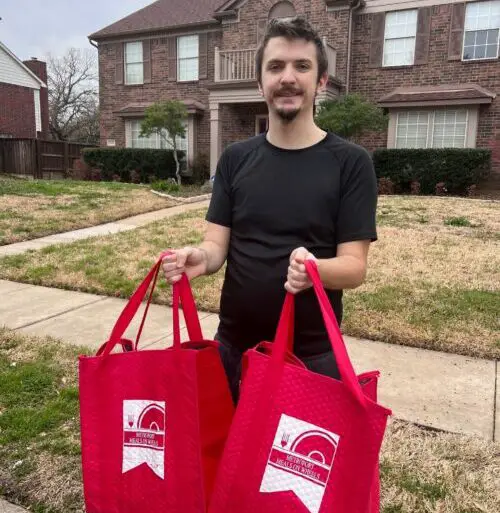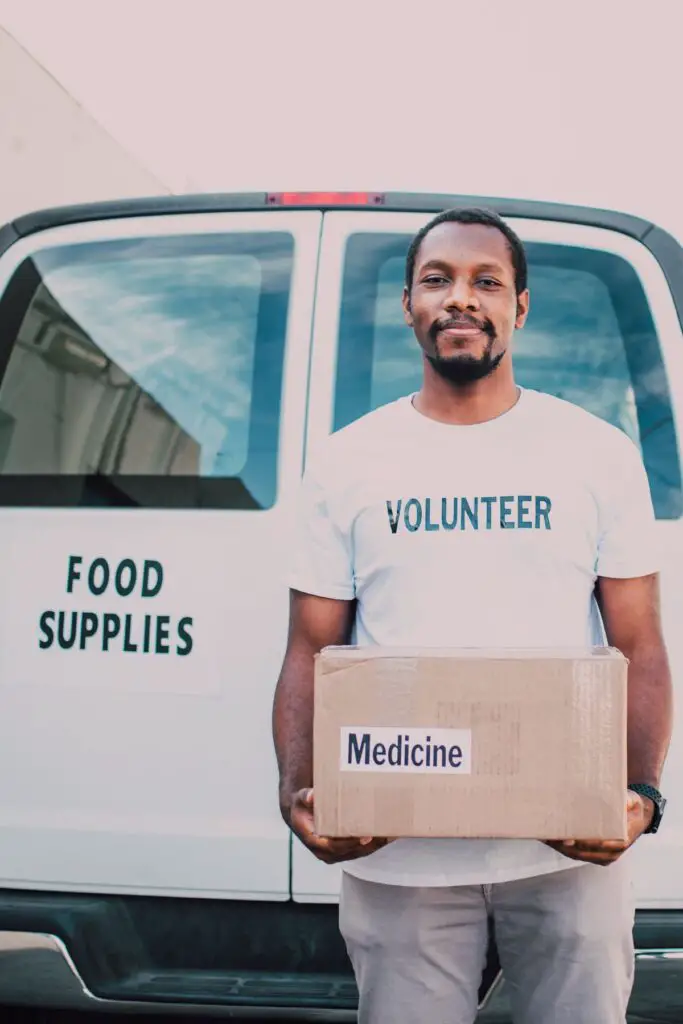Autism Volunteer Opportunities: 5 Ways Helping Others Fosters Acceptance
My enjoyment of volunteering in the community began at a very young age. In elementary school, I was in cub scouts and participated in numerous activities that were age appropriate to help out others. My autism volunteer opportunities increased as I got older, in part because my family placed a high value on helping out people where we lived. While I happily assisted my family with their volunteer passions, when I entered high school, I found my own path of autism volunteer opportunities. And I still actively volunteer today.
 In high school, I joined a service club called Character Counts and began participating in community events like food drives and food kitchens. My tennis team also volunteered at numerous events throughout the year as well. When I turned 16, I became old enough to start donating blood, and gave at every campus blood drive event.
In high school, I joined a service club called Character Counts and began participating in community events like food drives and food kitchens. My tennis team also volunteered at numerous events throughout the year as well. When I turned 16, I became old enough to start donating blood, and gave at every campus blood drive event.
I thought it was such a good thing to do, I began donating independently at a local blood bank, and actually donated enough to earn a “blood donation cord” at graduation. I also earned a letter jacket by my number of community service hours, something I’m still proud of today.
But I really connected with my autism volunteer opportunities when I got my first speeding ticket. As a first-time offender, I went to my city’s Teen Court. I had to speak before my peers who represented all aspects of a real court in session. I was found guilty, and had the choice of working off my find by volunteering there. I said yes, and participated in the city-run volunteer teen organization long after my fine was paid off.
In fact, I stayed in the teen court volunteer ranks up until the time when I aged out at 18. Teen Court even awarded me a scholarship to assist me with my pursuit of an associate degree at my local community college, and for which I am still grateful for the autism volunteer opportunities I was given.
Since that time, I continued pursuing autism volunteer opportunities. When Covid hit and the medical community urgently needed plasma, I donated regularly to try and help others in need. I also help drive and deliver food to seniors in need along with my mom through my community’s Meals on Wheels program.
I volunteer because I believe I can make a difference and I know I help someone. Plus, autism volunteer opportunities with non-profit charities, such as food banks and community events, hold immense potential for individuals on the spectrum.
Engaging in volunteerism can bring about transformative experiences for individuals on the autism spectrum, fostering personal growth, and enhancing their sense of belonging within the community.
I think I have benefited from my autism volunteer opportunities and believe most others will do. There are significant advantages for individuals with autism and volunteerism and how their involvement in charitable activities can contribute to a more inclusive society.
5 Significant Ways to Promote Autism Volunteer Opportunities
- Building Meaningful Connections:
One of the remarkable aspects of autism volunteer opportunities are their ability to facilitate the formation of meaningful connections. This holds true for anyone.Charitable organizations provide a unique platform for individuals to collaborate with fellow volunteers, develop social skills, and forge relationships. By working together on tasks and projects, individuals with autism have the opportunity to enhance their communication skills, learn effective teamwork, and experience a sense of camaraderie.
These connections not only enrich their personal lives but also facilitate a greater sense of belonging within the community.
In addition, research has shown that participation in volunteer activities leads to increased social interaction, improved social skills, and higher levels of satisfaction with social relationships For individuals with autism, who may face challenges in social situations, volunteering can serve as a valuable opportunity for social growth and building a support network.
- Developing Valuable Skills:
Autism volunteer opportunities expose individuals with autism to a wide range of tasks and responsibilities, allowing them to acquire new skills and interests. Whether it’s organizing events, coordinating logistics, or providing assistance at food banks, these experiences contribute to personal growth and broaden their horizons.Volunteering provides individuals with autism the chance to explore their passions, cultivate their talents, and potentially discover new career paths. For instance, working at a food bank can provide insights into food handling, organizational skills, and teamwork.
In addition, assisting in community events may involve public speaking, event planning, or creative problem-solving. These acquired skills can have a positive impact on their self-confidence and open doors to future opportunities.
Volunteering can also serve as a valuable addition to their resumes and demonstrate their dedication, reliability, and commitment to social causes, potentially enhancing their future employment prospects.
- Cultivating Emotional Well-Being:
Engaging in acts of service and witnessing the positive impact of their contributions can profoundly impact the emotional well-being of individuals with autism. Autism volunteer opportunities promote a sense of purpose, fulfillment, and self-worth.The act of giving back to the community and making a difference can instill a deep sense of pride and joy, boosting self-esteem and overall emotional resilience.
Studies have also indicated that volunteering is associated with increased life satisfaction and subjective well-being. For individuals with autism, who may face unique challenges in their daily lives, the emotional benefits derived from volunteering can be particularly significant. It provides an avenue for them to experience a sense of accomplishment, belonging, and connectedness with others.
- Encouraging Structure and Routine:
Many individuals with autism thrive in structured environments that provide predictability and routine. Volunteering at charities can precisely offer that. By participating in regular volunteer activities, individuals with autism can establish a sense of structure in their lives, providing stability and comfort. This routine contributes to a greater sense of stability and aids in overall well-being.Volunteering can also help individuals with autism develop time management skills, organizational abilities, and a sense of responsibility. Having specific tasks to accomplish within a given timeframe can provide a structured framework that supports their individual needs.
- Advocating for Inclusion and Autism Awareness:
Through their involvement with autism volunteer opportunities, individuals on the spectrum become powerful advocates for inclusion and autism awareness. By sharing their unique perspectives and experiences, they help foster understanding, challenge stereotypes, and promote a more inclusive society.Autistics’ firsthand knowledge of neurodiversity contributes to dispelling misconceptions, cultivating empathy, and building bridges between communities.
Volunteering at charities and community events offers individuals with autism a platform to actively participate in raising awareness about autism and advocating for the needs and rights of people on the autism spectrum. By sharing their stories and personal experiences, they can educate the community about autism, enlighten others about the challenges they face, and highlight the strengths and abilities that individuals with autism possess.
Autistics’ presence and active involvement in community activities also serve as a powerful testament to the capabilities and contributions of individuals with autism. It helps challenge societal biases and promotes a more inclusive and accepting environment where everyone can thrive.

In all my experiences with autism volunteer opportunities, I have never once been made to feel like I am any less of a contributor than anyone else. Organizers always have seemed so appreciative, which makes helping others in any way even more rewarding.
Individuals with autism can also engage in activities that directly support and serve the autism community. They can participate in fundraising events for autism organizations, assist in organizing awareness campaigns, or volunteer as mentors or advocates for other individuals on the spectrum. By actively engaging in these initiatives, they become agents of change and play a crucial role in shaping a more inclusive society.
In addition to the broader impact, advocacy and awareness efforts can have a profound personal effect on individuals with autism. I know it has for me. Volunteerism has in some ways empowered me to embrace my identity, develop self-advocacy skills, and build confidence in expressing needs and preferences. By actively participating in advocacy, I’ve become a better agent of my own life and contribute to improving the quality of life for themselves and others on the autism spectrum.
Why Communities Should Create Inclusive Spaces for Autism Volunteer Opportunities
It is crucial for communities and organizations to create inclusive spaces that welcome and accommodate autism volunteer opportunities. This includes providing appropriate training, clear communication channels, and understanding of their unique needs. By embracing diversity and fostering an inclusive environment, we can create a society where individuals with autism can actively participate, thrive, and make a significant impact.
So, whether it’s lending a helping hand at a local food bank, organizing community events, or engaging in advocacy efforts, individuals with autism have a vital role to play in shaping a better, more inclusive world. If you have ever wondered where you can volunteer, check with your local city or chamber of commerce, or places like the YMCA or boys and girls clubs for starters. And then go from there. Because volunteering is really good for your mental health!
Let’s celebrate autistics unique strengths, support their aspirations, and embrace the tremendous value they bring to our communities through their volunteerism and advocacy. Together, we can create a society where everyone has the opportunity to contribute and flourish.
Autism in Adults: Living, Learning, and Overcoming Challenges for a Fulfilled Life
Autism in adults requires additional support and coping skills to achieve independence in today’s world. Learn more about ways adults can live fulfilled lives and the challenges they face.
· 14 Practical Ways for Staying Motivated to Unlock Full Potential
· Autism and Independence: 7 Skills That Empower Individuals to Thrive
· Dangers of Social Media Addiction: How To Leave the Screens And Face the Real World
· 8 Heartfelt Ways Autism Emotional Support Animals Transform Lives
· Autism in the Future: Optimism for Improved Perception and Embracement
· Autism and AI: 7 Discoveries About the Surprise Pairing and Profound Impact
· Are You An Adult With Autism? Here Are 6 Signs
· Autism After High School: Is College the Next Step?
· Autism vs Asperger’s Syndrome: What You Need to Know
· Autism Disclosure: Is Revealing Your Disorder Helpful or Hurtful?
· Work and Autism: What Employers Should Know About Hiring People Like Me
· Drivers with Autism Can Achieve Success Behind the Wheel
